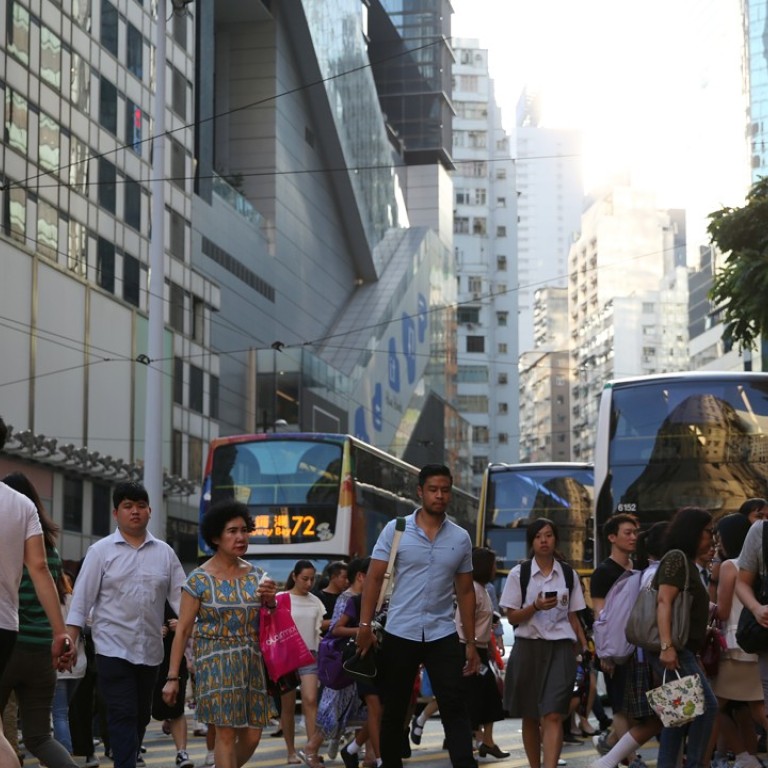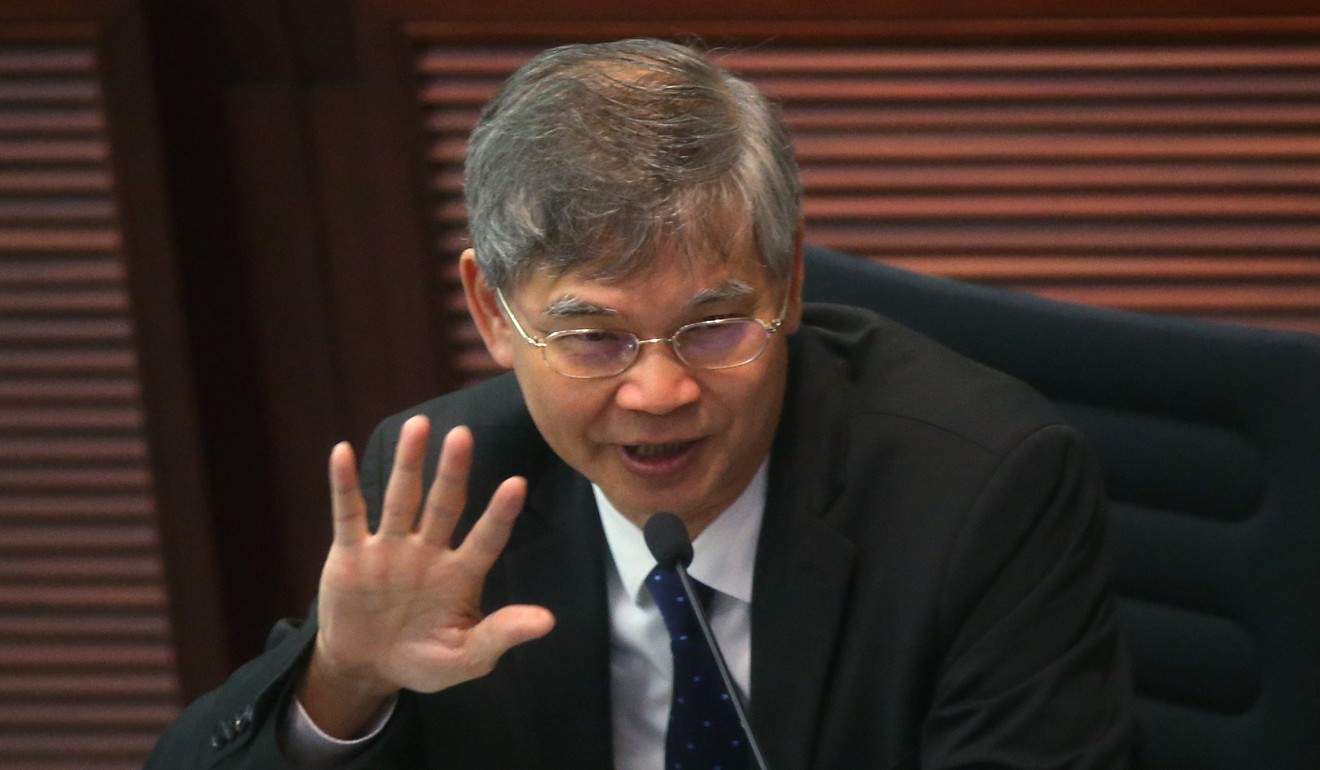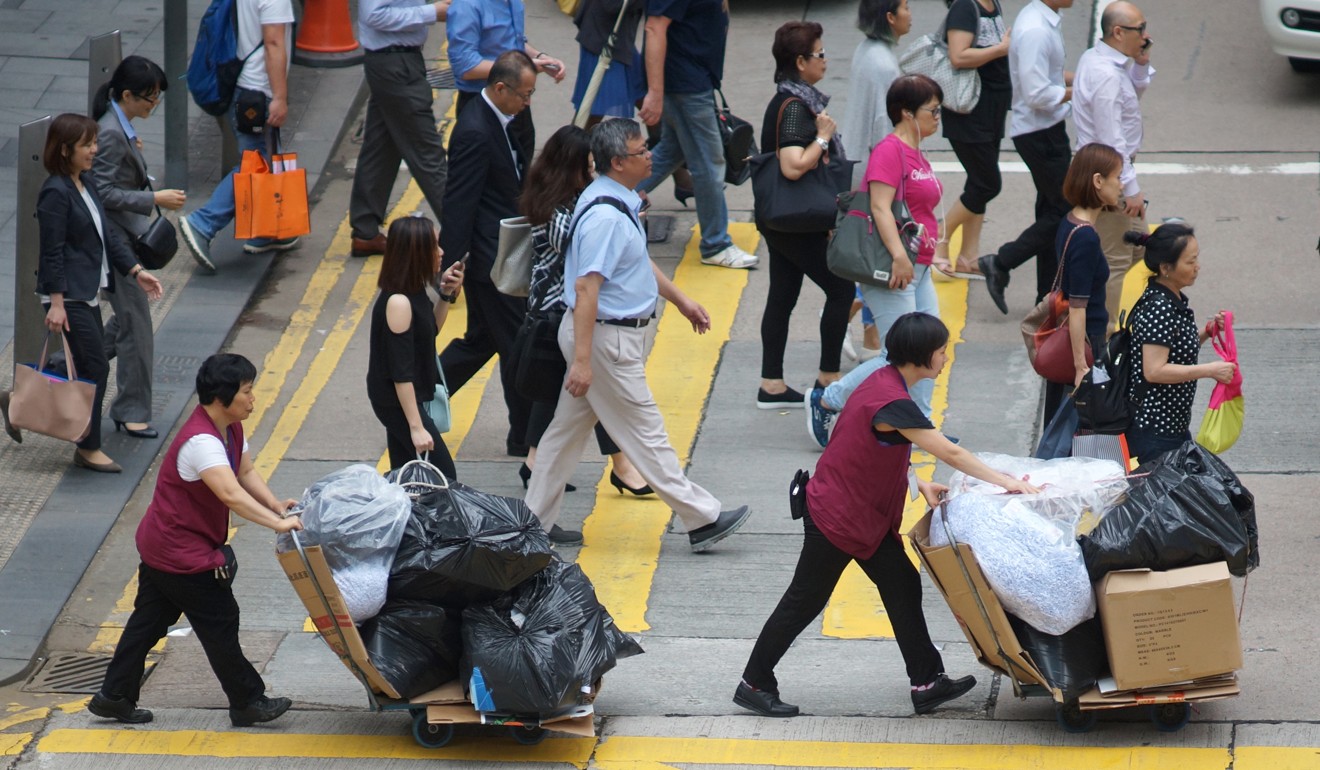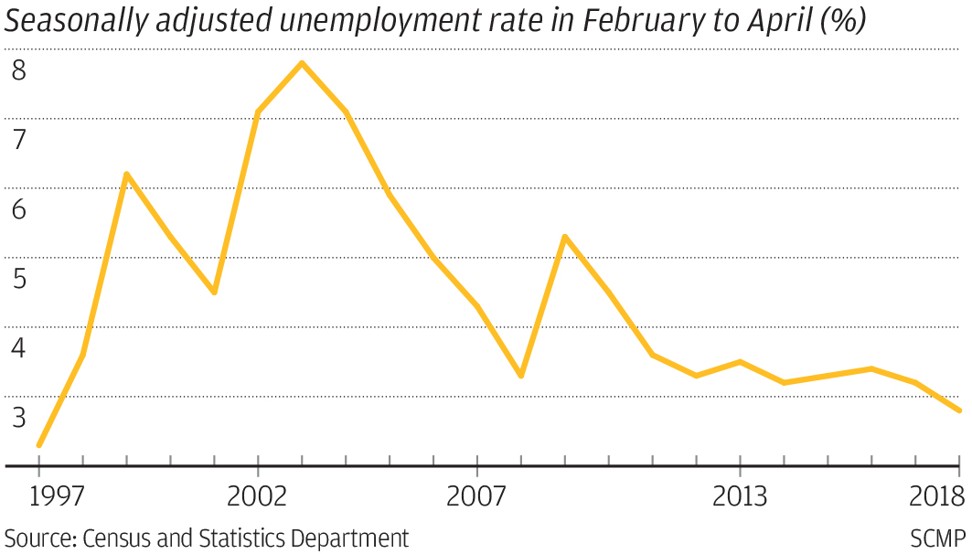
Hong Kong unemployment hits 20-year record low, but experts say labour market is still under pressure
Unemployment for February to April stood at 2.8 per cent, amid an ongoing debate and public consultation on the minimum wage for city workers
Hong Kong’s unemployment rate for the past three months reached a 20-year record low of 2.8 per cent, indicating a strong economic climate that is expected to last for the rest of the year.
However, economists and unionists said strong demand for workers might not translate into decent salaries for all employees or give them more bargaining power during the review of the minimum statutory wage.
The latest labour force statistics released on Thursday showed that from February to April the seasonally adjusted unemployment rate was 2.8 per cent, 0.1 percentage point lower than the rate from January to March.
Widespread automation tipped to spur 80pc unemployment rate in HK, other major cities by 2030
It was also the lowest jobless rate the city has seen for the quarter since 1998.
Over the same period, the underemployment rate remained unchanged at 1 per cent.

Secretary for Labour and Welfare Law Chi-kwong said the labour market tightened further from February to April “on the back of robust economic conditions”.
“Overall labour market conditions will remain tight in the near term amid the prevailing positive economic environment.”
Law added the government would “stay vigilant and closely monitor” the labour market.
“The momentum is likely to remain for the rest of the year if both the US interest rate and the local inflation rate rise in an expected order,” Kwan added.
The economist expected more women and elderly people – those aged over 65 – would continue to rejoin the workforce amid the high demand for labour.
In the fourth quarter of 2017, the labour participation rate was 50.7 per cent of the female population aged above 15, and 10.6 per cent of the overall population aged above 65. The two rates were 46.2 per cent and 6.3 per cent respectively 20 years ago.
However, Kwan believed stronger bargaining power for workers in the minimum wage review was not guaranteed.
Given that inflation in Hong Kong is not very high, it will be rather difficult for employees to fight for a higher minimum wage
“The minimum wage also has to take into account inflation and living costs,” he said. “Given that inflation in Hong Kong is not very high, it will be rather difficult for employees to fight for a higher minimum wage.”
From 2015 to 2017, the annual increment of the composite consumer price index fell from 3 per cent to 1.5 per cent. In the first three months of 2018, the index rose from 1.7 per cent to 2.6 per cent year on year.
Confederation of Trade Unions chairwoman Carol Ng Man-yee agreed that workers would not have a stronger voice in wage negotiation despite the record low unemployment rate.
“What the government has been neglecting and covering with the seemingly encouraging numbers is the fact that the robust economic conditions are built on grass-roots workers who have to take several low-paid jobs or work long hours to make ends meet,” Ng said.
Catering sector lawmaker Tommy Cheung Yu-yan estimated some 30,000 workers were needed to relieve the labour shortage in restaurants across Hong Kong.

“In one case, a restaurant offers HK$15,000 to HK$16,000 per month and still can’t find a dishwasher,” he said Cheung, dismissing the unionists’ criticism of low wages.
Economist Kwan also expressed concern that a spike in the minimum wage would exacerbate the structural mismatch in the labour market.
“If the floor rate increases too much, some jobs will remain in huge shortage despite offering high salaries, such as dishwashing, while others’ salary increases would be stagnant, such as in the logistics industry,” he explained.
What difference will an increase to the minimum wage mean for the lowest-paid in Hong Kong?
Cheung Lai-ha, Ng’s deputy in the Confederation of Trade Unions, said working conditions, including employment stability, community support and labour protection, were also important to boost labour supply.
“For example, can supermarkets allow cashiers to sit instead of standing for nine hours a day?” she asked. “Some women in this situation told me they had to soak their feet in hot water to relieve the pain every night.”


